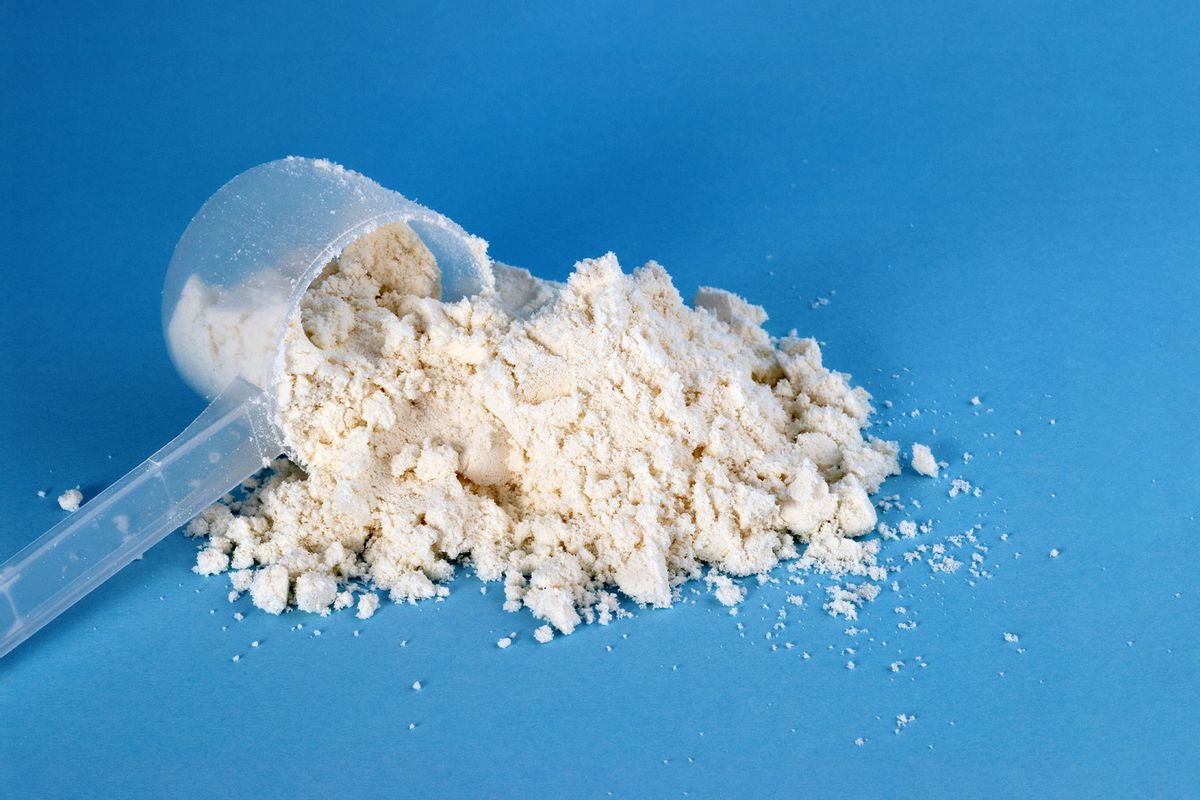A new report has found that several brands of store-bought protein powders contain high levels of lead and cadmium. Plant-based, organic and chocolate-flavored products, in particular, had the highest levels.
The Clean Label Project, a nonprofit organization focused on food transparency and proper food labeling, conducted over 35,862 individual tests on notable contaminants, including lead, cadmium, arsenic, mercury and bisphenols (BPA, BPS). “These chemicals, known for their potential to harm human health, can enter protein powders through environmental exposure, agricultural practices, and packaging materials,” the report specified.
A total of 160 products from 70 of the top-selling brands, which represent 83% of the protein supplements market, were tested.
Organic protein powders were found to contain three times more lead and twice the amount of cadmium compared to non-organic products, per the study. Plant-based protein powders (typically made from soy, rice and peas) showed three times more lead than whey-based alternatives. And chocolate-flavored powders contained four times more lead than vanilla-flavored powders.
Additionally, a whopping 47% of products exceeded California Proposition 65 thresholds for toxic metals. The law, also known as the Safe Drinking Water and Toxic Enforcement Act of 1986, “protects the state’s drinking water sources from being contaminated with chemicals known to cause cancer, birth defects or other reproductive harm,” according to the California Office of Environmental Health Hazard Assessment. It also requires businesses to inform state consumers about exposure to toxic chemicals.
According to the US Environmental Protection Agency, no level of lead consumption is safe for both children and adults. As for cadmium, increased exposure has been linked to different types of cancer, bone demineralization, kidney and reproductive dysfunction, cardiovascular disease and diabetes, according to the U.S. Food and Drug Administration.
The study found that 77% of plant-based protein powders tested over Prop 65 thresholds for lead. 79% of organic protein powders tested over thresholds for lead, while 65% of chocolate protein powders tested over thresholds.
“This report aims to spark an important conversation about the safety of protein supplements and empower consumers to make more informed choices, while urging manufacturers to prioritize ingredient purity,” the study explained.
Protein powder is one of the most profitable products within the health and fitness industries in the United States. In 2023, the protein supplements market size was valued at $9 billion and is expected to grow from $9.88 billion in 2024 to $22.58 billion by 2032.
Want more great food writing and recipes? Subscribe to Salon Food's newsletter, The Bite.
The latest findings come just a few months after high levels of heavy metals were found in multiple dark chocolate products. A 2024 study published in Frontiers in Nutrition tested 72 “consumer cocoa-containing products” and reported that 43% of those products contained lead and 35% contained cadmium.
“This indicates that heavy metal contamination — in more than half of products tested — may not pose any appreciable risk for the average person when consumed as a single serving; however, consuming some of the products tested, or more than one serving per day in combination with non-cocoa derived sources heavy metals, may add up to exposure that would exceed the Prop 65 [maximum allowable dose level],” the study authors wrote. They added that “organic” products often contained higher levels of both lead and cadmium.
We need your help to stay independent
When it comes to protein powders, experts said that consumers shouldn’t stop using them altogether, but they can take a few precautions.
Jaclyn Bowen, executive director of the Clean Label Project, told CNN that protein powders made from peas are a better option because they contain the lowest levels of heavy metals. “If you don’t have any dietary restrictions, the data suggests that whey-based or egg-based, vanilla-flavored protein powders will have the least amount,” she added.
Bowen also recommended reaching out to specific brands and asking them about contaminant levels in their products.

Shares